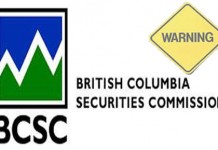Easy Forex, which is headquartered in Limassol and is a regulated broker by the Cyprus Securities and Exchange Commission since 2007, under license number 079/07, is admittedly one of the largest forex brokers in Israel and in the Middle East in general.
According to reports published in Israeli newspapers, the broker is very likely to be called to pay up a huge sum, estimated at around $137 million, because the Tel Aviv District Court has recently ruled on a lawsuit, originally filed back in 2010 by a group of five Israeli clients, accusing Easy Forex of offering unlicensed investment advice, marketing and investment management.
The court decided that there is a “probable chance” that the Israeli Investment Management Law was indeed breached by Easy Forex and the case will therefore proceed further, having the court’s approval for the filing of a class action lawsuit against the firm, its shareholders and executives.
As this is an on-going case before the court of law we will refrain from entering into many specifics about the arguments put forward by the two sides. We will however monitor the story as it unfolds and inform you accordingly.
It is however interesting to note that this is not the first time that Easy Forex gets into trouble with the Israeli court system, since back in 2010, it was again faced with a similar lawsuit by several former clients who also allegedly lost hundreds of thousands of dollars trading with the company. As a result of this specific lawsuit the company was actually put under a criminal investigation in 2011, while there were also reports in the Israeli financial media at that time that similar procedures were settled out of court through secret settlement agreements.
What perhaps differentiates the scene this time round and makes it more possible that the lawsuit will be successful and the broker may be called to pay up, is the significant change that came into effect in the financial services landscape in Israeli, with the ratification by the Israeli Parliament in early August 2014 for the first time ever, of the regulations on the financial trading industry, mandating , inter alia that Israeli brokers must acquire a licence, limiting the maximum leverage offered to traders and implementing various other requirements.
The approval of these regulations was considered as very important and a dire need for the smooth operation of the industry and the safeguarding of the rights of traders, because up until recently the absence of such legal provisions had meant that brokers in Israel were operating completely free of regulations or licensing. In the wake of a number of high profile lawsuits against brokers, the Israel Securities Authority (ISA) was forced to call for urgent action to be taken by lawmakers, because it considered that an unregulated market was a dangerous one.
Under the provisions of the new legal framework and regulations, brokers need to apply to the ISA to obtain a licence to operate in Israel. Moreover, they have to file reports to the ISA to insure client funds. Their maximum leverage is also limited to 5% for high-risk financial product, 2.5% for medium-risk and 1% for low-risk. Furthermore, the segregation of customer’s money from company funds becomes obligatory, as is the brokers’ duty to present clients with biweekly and monthly reports about all their activity, including deposits, trades, commissions, charges and interest.
Furthermore, brokers are forced to ensure that the client is eligible and fully understands the financial mechanism they operate, and to verify that the client is not a minor and is sufficiently competent. Additionally, the firm needs to document the entire procedure adequately.
Finally, the change in the legal framework which appears to have rendered the law suit against Easy Forex more likely to succeed is the fact that the new regulations on the issue of the conflict of interests entail that brokers in Israel are no longer able to represent a client unless they explain their counterposition to the client that that they are not allowed to offer advice on any product that they offer.















